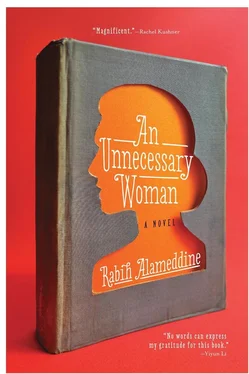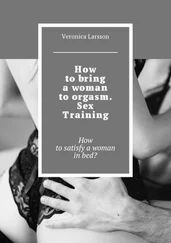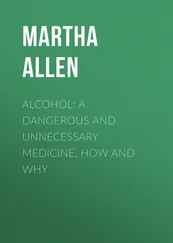She was changing. I thought it was temporary, a phase. She’d mentioned that she missed her mother, thought of her often, missed both her parents. I thought that perfectly normal. She still had her brothers, her nieces and nephews, and the full glory of the lieutenant’s family. She was a moon orbiting a multitude of planets. She’d filled her life with people and relationships, people who were not in my life at all. She’d carved her name into many a heart, or so I had assumed.
That trumpery, hope, allowed me to dupe myself. I desperately wished her to be less alone, less solitary, than I was — alone as she had always been, alone as she would always be.
Hope is forgivable when you’re young, isn’t it? With no suspicion of irony, without a soupçon of cynicism, hope lures with its siren song. I had my illusions and she had hers — she certainly had hers.
Exactly a year before her first suicide attempt, the lieutenant’s mother, my mother-in-law, had passed away. I had not considered associating the two events together until after Hannah’s death. She kept vigil with the family at the dying woman’s bedside. She told me that my ex-husband kept glaring at her, but wouldn’t say anything because his mother had specifically asked for her to be there. It seems that Hannah was the last person the lieutenant’s mother spoke to.
“You have given me, my dearest daughter,” she whispered in a slow, raspy voice, “some of the happiest moments of my life. Your presence in our family has made the absence of my son bearable. I promise that once all three of us are in Heaven, I will not be forced to make the impossible decision of choosing between the two of you.”
Hannah, happy as could be, relayed all this to me the following day. She so appreciated that on her deathbed, with her last breath, the lieutenant’s mother acknowledged her as a daughter. She mentioned that last sentence but glossed over it, laughed it off even. Choosing between the lieutenant and her? What choice? Later, when I received the journals, I saw that she’d written down the first two sentences the dying woman spoke, but hadn’t recorded that disturbing promise.
She moseyed along through her life for quite a while after that, nine or ten months, but I imagine that like a mosquito buzzing in your ear, that last sentence, vague as it may have been, wouldn’t let her sleep. A buzz of doubt that became the roar of the crowd at the Colosseum?
Reality may have tempted her, the serpent may have offered her the apple.
She may have woken up one morning and realized that the lieutenant had never desired her. She may have woken up one morning and found one of Spinoza’s lenses.
Flashing a light on a dark corner can start a fire that scorches everything in its wake, including your ever-so-flammable soul. Cioran once said that “one touch of clearsightedness reduces us to our primary state: nakedness.”
I am tired, always tired. An amorphous exhaustion smothers me. I wish to sleep. I wish I were able to sleep.
We had a dreary, curiously gloomy winter that year, cold but not freezing, with heavy rainfall. Hannah seemed to compete with the weather: Who is more overcast? At first the changes were gradual and practically imperceptible. She seemed a bit withdrawn, less talkative. It took me a couple of weeks to realize that she hadn’t been writing in her journal. I asked her about it, but she dismissed my concerns with a flick of the hand.
In a strange way, I felt she was there but she wasn’t there with me, or to put it another way, that she occupied her body, but not her soul. Does that make sense?
In the evenings at home I would make her a cup of tea, and at times it would sit before her untouched. I would remind her that it was turning cold.
“Silly me,” she’d say. She’d take a sip and then forget about it once more.
One evening, as I sat across from her at my gaudy kitchen table, I caught her transfixed, studying a limpid pool of lentil and chard soup as if the bowl were a vessel for divination. Another incident really triggered my anxiety. It involved the knitting. I saw her fingers stop, just stop — the needles didn’t move for at least thirty seconds. That was unthinkable, inconceivable. Hannah could knit in her sleep, an indubitably automatic motion for her. She could pick up her knitting and carry on a conversation, watch television, talk on the phone, the needles never stopping. She could read, only pausing briefly to flip the page. I saw her — I saw her stop knitting and stare out into the ether, her gaze fixed on a spot in the middle of my living room, and I panicked.
“What are you doing?” I asked.
“Thinking,” she said in a conversation-ending tone.
We had an early spring in 1972; after the groaning winter, the temperature grew mild. Even a few butterflies dipped their wings into the air. One of those pleasant days, I was busy at the bookstore. I don’t think customers bought much, but I had heavy walk-in traffic. By closing time, Hannah hadn’t shown up, even though she’d told me she would. I assumed she wanted to be by herself to think of her deceased mother, of both her parents. I didn’t bother her. However, she ended up missing three days in a row, and I finally telephoned. She admitted she was sad, yet she sounded rational.
We had a laugh when she inadvertently said I’d be cheerless as well if my mother were to pass away, then thought better of it. “Well, maybe not so much,” she added.
The following morning Hannah entered my bookstore in flamboyantly high spirits. It was spring, she insisted in reply to my inquiries, the season of mad flowerings and lovely beginnings.
“Must there always be a reason for one to be happy?” she asked in feigned innocence. She sang her words — no, it was more that she spoke them in an exuberant cadence. Her face was dotted with color. She picked up books off the shelves and replaced them without looking at title or content. Her eyes gleamed with mischief, like those of a fox just discovering that she has the run of the chicken coop. I did believe her — believed that she was happy that morning, that her bubbling joy, momentary or not, was real. What I needed was an explanation — always with the causality. What makes you happy?
After much parrying — she answered most of my questions with a short burst of laughter — she told me she’d had a good night’s sleep, the first in years.
How, what, why — an hour of evasions and obfuscations before Hannah confessed all, or at least what I thought was all. She’d felt terribly despondent the previous evening, she couldn’t handle the weight of such sadness. She spoke of this melancholy in abstract terms (this heaviness, this pressure), she spoke of it as something outside her, something entering her, and now it had disappeared, a good night’s sleep was all that was needed it seemed. But last night she hadn’t been happy. No, she hadn’t been. She didn’t see a way out of the fog. Yes, she had been in a colorless midwinter fog, a peculiarly oppressive fog. The evening before, she’d been disconsolate, that’s what it was.
“I was weary,” she said, looking and sounding anything but. “I was wandering in my head, if you know what I mean, without any aim or plan, lost, unable to see what was in front of me.”
She was tired, but not afraid, she told me. She spent at least three hours looking out the window in her room, looking out into the darkness, no streetlights. Not pitch-black darkness, mind you, not the deep world of darkness we dread. The city’s electric grid was humming. Her brother and his wife watched television in the living room. She could have turned on the night lamp, but she didn’t.
“Last night,” she said, “I misplaced the light of God.”
She wasn’t herself, so she put on her dress of fine linen and purple, and she was cold, so she put on her black cardigan.
Читать дальше












